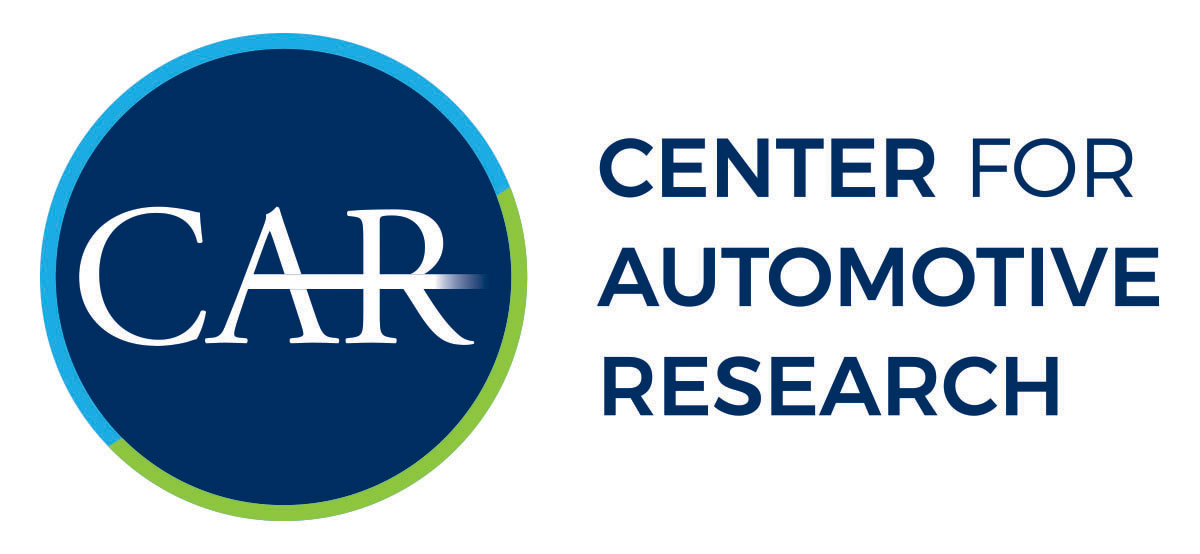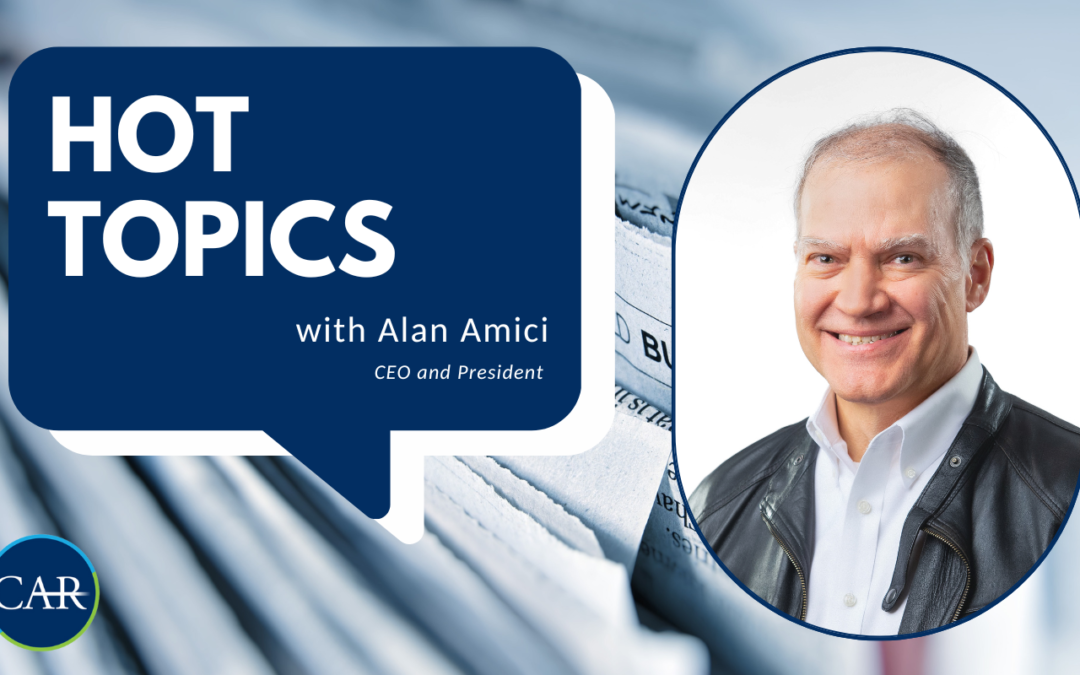Automotive Industry Hot Topics with CAR President and CEO, Alan Amici – (12/01/2023)
On a bi-weekly basis, the Center for Automotive Research (CAR) welcomes our audience to decompress with our President and CEO, Alan Amici, as he covers and shares his thoughts on the latest Hot Topics happening in the automotive industry. If you would like to receive this bi-weekly insight into critical industry issues you and your organization are facing, sign up for our mailing list here to get Hot Topics sent directly to your inbox.
Hype for Hybrids:
- America’s top-selling car will soon come only as a hybrid
- November inventory trends: Leftover ‘23s, an EV plateau, and hybrid hype
- The auto industry overestimated EV demand this year. Now companies are scrambling.
- Hybrid vehicle sales surge in China, posing fresh threat to foreign automakers
Alan’s thoughts:
A recent resurgence in hybrid model sales is causing automakers to rethink their portfolios. Toyota’s HEV lineup, featuring popular models such as the Prius, Camry, and Rav4, is experiencing strong demand, prompting other automakers to assess the pace of their transition to pure EVs. This shift is evident on a global scale, impacting the markets in China, the US, and the EU. Price matters and EVs are expensive, especially when considering interest rates for new car sales. The message to the industry: find a way to make EVs more affordable. The message to policymakers: market forces are powerful, and consumers will choose the best option that best fits their needs.
The Battle for Battery Plants:
- Ford to scale back plans for $3.5 billion Michigan battery plant as EV demand disappoints, labor costs rise
- Stellantis declined Michigan’s $1 billion offer for EV battery plant
- Intelligent industry for automakers: Supercharging EV battery manufacturing
- Up to 900 foreign workers coming to Windsor to help build EV battery plant, NextStar says amid backlash
Alan’s thoughts:
The battle for EV battery plants is uneven, unpredictable, and not for the faint of heart. Ford is scaling back plans on their joint venture with CATL in Michigan, citing cost containment and an overexuberant demand forecast. Stellantis spurned generous incentives from Michigan in selecting a Kokomo, Indiana site for a second battery plant. The Canadian government is facing backlash over the prospect of foreign workers handling equipment set up. Supply chain management is especially challenging when implementing new technology, establishing new plants, gaining access to critical minerals, and managing costs concurrently. This is further exacerbated by uncertain EV demand through 2030. Buckle your seatbelts and hang on tight.
Reducing Emissions:
- U.S. finalizes rule requiring states to set transportation emission targets
- Biden’s clean energy agenda faces mounting headwinds
- Decarbonizing Heavy Transportation: Quantron’s Michael Perschke On Pioneering Hydrogen Solutions
Alan’s thoughts:
Long haul trucking has been frequently cited as one of the best applications for hydrogen (H2) fuel cells, offering an advantage over electric vehicles (EVs) by avoiding the payload-reducing weight of pure EV batteries. Fuel cells appear to be a good candidate due to fast refueling times and range. However, the H2 infrastructure is even more nascent than the EV charging networks. The EV alternative will require reconfiguring the logistics networks into a spoke and hub arrangement to accommodate the expected range of EV trucks. This is a massive undertaking and still requires infrastructure improvements to accommodate DC fast charging of large capacity batteries used in trucking. I’m encouraged by having multiple alternatives, but these long-term strategic decisions are not to be taken lightly, as they will significantly impact the movement of goods for decades to come.

Alan Amici
President & CEO
Get our feature stories straight to your inbox.
Join our email list today and never miss our feature stories, publications, and event news.

